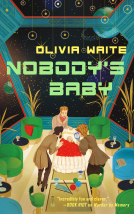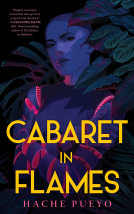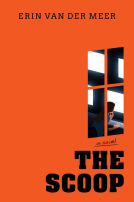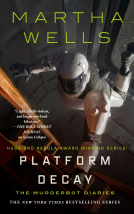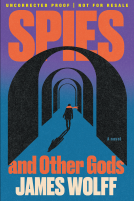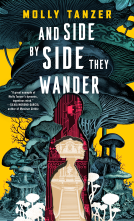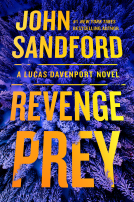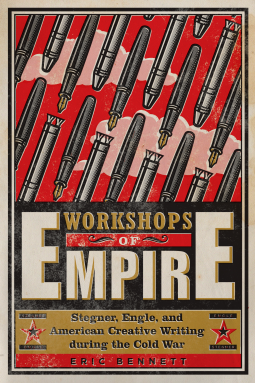
Workshops of Empire
Stegner, Engle, and American Creative Writing during the Cold War
by Eric Bennett
This title was previously available on NetGalley and is now archived.
Send NetGalley books directly to your Kindle or Kindle app
1
To read on a Kindle or Kindle app, please add kindle@netgalley.com as an approved email address to receive files in your Amazon account. Click here for step-by-step instructions.
2
Also find your Kindle email address within your Amazon account, and enter it here.
Pub Date Oct 15 2015 | Archive Date Dec 01 2015
University of Iowa Press | The New American Canon
Description
Creative writing emerged as a graduate discipline in the United States amid this astonishing swirl of grand conceptions. The early workshops were formed not only at the time of, but in the image of, and under the tremendous urgency of, the postwar imperatives for the humanities. Vivid renderings of personal experience would preserve the liberal democratic soul—a soul menaced by the gathering leftwing totalitarianism of the USSR and the memory of fascism in Italy and Germany.
Workshops of Empire explores this history via the careers of Paul Engle at the University of Iowa and Wallace Stegner at Stanford. In the story of these founding fathers of the discipline, Eric Bennett discovers the cultural, political, literary, intellectual, and institutional underpinnings of creative writing programs within the university. He shows how the model of literary technique championed by the first writing programs—a model that values the interior and private life of the individual, whose experiences are not determined by any community, ideology, or political system—was born out of this Cold War context and continues to influence the way creative writing is taught, studied, read, and written into the twenty-first century.
Advance Praise
“Returning to the scene of the emergence of the discipline of creative writing in the Cold War, this book makes a valuable contribution to the ongoing debate about one of our most consequential contemporary literary institutions. While one might want to quarrel with or qualify some of Bennett’s conclusions, one can’t help but be impressed with the vigor with which they are offered, and applaud his passionate concern for intellectual and artistic freedom.”—Mark McGurl, author, The Program Era: Postwar Fiction and the Rise of Creative Writing
“Bennett proves that US creative writing programs were props to Cold War efforts to make liberal capitalism dominant. He shows that their vision of literature as a tribute to the individual’s complex private life and perspective was inseparable from attempts to demonize the Soviet world as one of conformity and repression. It’s an essential and fascinating book.”—Sarah Brouillette, author, Literature and the Creative Economy
Available Editions
| EDITION | Paperback |
| ISBN | 9781609383718 |
| PRICE | $22.50 (USD) |
Links
Average rating from 7 members
Featured Reviews
 Joseph S, Reviewer
Joseph S, Reviewer
Workshops of Empire: Stegner, Engle, and American Creative Writing during the Cold War by Eric Bennett is a look at the expansion of American creative writing. Bennett is an associate professor of English at Providence College in Rhode Island. He is the author of A Big Enough Lie, and his writing has appeared in A Public Space, New Writing, Modern Fiction Studies, Blackwell-Wiley’s Companion to Creative Writing, The Chronicle of Higher Education, VQR, MFA vs. NYC, and Africana.
The Cold War was a changing point in American thinking. Gone was the idea of a collective society that pulled together to fight fascists and a return to the individual became prominent. Collectivism meant communism and communism was wrong. One only had to look at 1950s Science fiction movies to see this. Collectivism was evil and the hero always an individual who stood apart. Dr. Miles Bennell stood against a town of pod people in Invasion of the Body Snatchers. Steve McQueen stood alone against a town that refused to believe The Blob was real. Perhaps without noticing America rejected the collective identity and moved into individualism.
The other great change that materialized during the early years of the Cold War was education. The G.I. Bill put a college education within the reach of many who would not have attended college before. America had an educated public beyond the privileged class. With the rise in education, literature started to rise.
"In magazines large and small, reactionaries competed with radicals for the attention of well-educated readers."
...
"America writers and intellectuals affiliated with that "vital center" believed that the complexity of literature provided an antidote to sloganeering amidst slogans run amok. No more Arbeit macht frei; no more Workers of the world unite! "
Literary modernism grew out of the interwar period and gave rise to writers such as TS Eliot, Yeats, Joyce, who wanted to overturn the discipline of literary form. Stream of consciousness, unreliable narrators, and a mistrust of traditional power became the norm. Opposing the modernism was New Humanism championed by Irving Babbitt. New Humanism fought to capture the glory of the past in literature. The Great Depression, however, damaged the New Humanist movement as the country now saw failure in the ideas of the past and looked for help outside of individual responsibility. Like American politics, American literature was also trapped in a struggle between liberals and conservatives. Workshops of Empire highlights this struggle and the results in literature and the rise of creative writing at the university level.
Bennett covers the history of creative writing and its champions and detractors. He makes an interesting point about the development of creative writing and high taxes. Oppressive tax rates actually encouraged the Rockefeller Foundation to give money to university programs. Creative writing programs, to a great degree, were funded by corporate donations and grants. Bennett also includes biographies of Paul Engle, director of the Iowa Writers' Workshop and Wallace Stegner, the founder of the creative writing program at Stanford. He concludes his study with a comparison of Hemingway and Henry James.
Today many college educated students and even high school students take courses in creative writing as part of their English curriculum without much thought of its history. The idea of creative writing being part of the English curriculum is coming into question more so today. English is the study of rules and form. Creative writing is self-expression and creative writing is a fine arts degree taught in workshops rather than seminars. This issue has not been settled.
Having a masters degree in political science puts me on the outside looking in on the role of creative writing, but leaves me on the inside as far as the history and the Cold War that influenced it. Workshops of Empire offered me an insight into the change in American writing, education and thinking based on concepts that I already understood but the effects I never noticed in writing. As a latecomer to poetry, I found this book enlightening and an explanation of how writing changed from Whitman to Eliot to Ginsberg to winners of the Iowa Poetry Prize.
As a survivor of an MFA program, there are a lot of ways I would describe writing workshops, but until reading this book I never imagined a connection to the Cold War. Leave it to the University of Iowa Press, the publishing wing of the school that invented the Platonic form of the modern workshop, to offer this rich, counterintuitive history of the MFA.
These days, there’s nothing very revolutionary about a creative writing program. In fact, I still refer to mine as a conformative writing program, since anything that deviated from the cookie-cutter formula was dismissed.
But following World War II, Bennett argues, there developed an optimism that “the complexity of literature” would fend off the proliferation of simple sloganeering. Advances in science and technology had created weapons of terrifying power. It was time to advance the study of human nature, which happened to coincide with an increase in college attendance, thanks to the GI Bill.
“To understand creative writing in America, even today, requires tracing its origins back to the apocalyptic fears and redemptive hopes that galvanized the postwar atmosphere,” Bennett writes.
I’ve often mused about how the World Wars produced more great fiction writers than any others, and Bennett helps explain (in part) why this was: “Veterans wanted to write, and taxpayers were willing to pay for it.”
Bennett’s focus is on the Cold War era, particularly two of the most influential figures in the history of the MFA: Paul Engle and Wallace Stegner (who founded the programs at Iowa and Stanford respectively).
It’s a fascinating read and should be required reading for anyone enrolled in or considering an MFA program.

